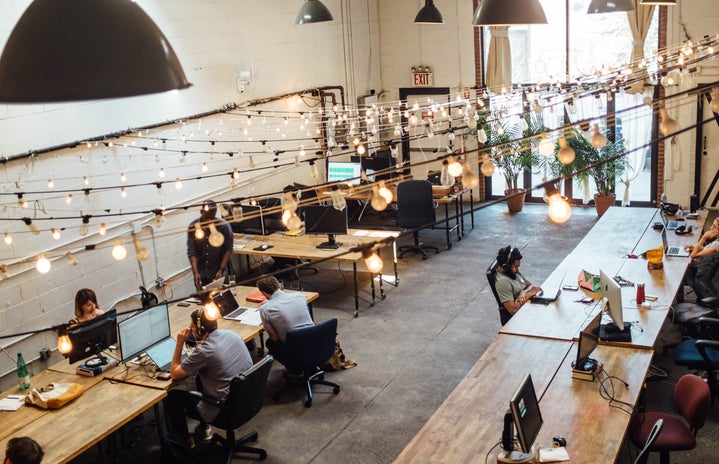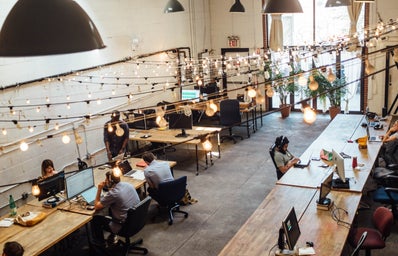Ashoka University is a new university and has only 4 batches of students as of now. The fourth-year students are anxious as well as excited to get into the real world which breaks the Ashoka bubble and apply for jobs. There are a few staggering companies with great offers and most students are hoping to get a position with them. Deloitte is one such company which brings a sparkle to the eyes of most of the graduating students. Sarayu Krishnan from the 4th year got a great job offer at Deloitte. We can’t wait to tell you more about it!
1) What is your major and why did you choose it?
A: My major is Economics. In school, I really enjoyed this subject, but when I came to Ashoka what I liked was how the faculty went about teaching it. Especially with professors like Ramaswamy and Anisha Sharma, what I really liked in my third year were the electives- because they made Economics more relevant in the real world. We were studying problems such as education, discrimination, and we were studying this through empirical research papers, so it really tied together all these technical aspects of Economics with real-life happenings, and that’s what made it so interesting.
2) Seeing as you are a part of the founding batch; did you ever imagine as a first year that you would get this opportunity?
A: Not really, I wasn’t even thinking about the job process. At that point of time I was thinking about- you know- “How many courses am I doing?” and “The different kind of courses I’m doing” and how to go about it. It was a lot to take in, in the first year, because there were a lot of different subjects. So, I don’t think anything like the job process, or anything close to Deloitte ever crossed my mind.
3) Being a part of the first batch, at a time when the procedures to apply for jobs was not so set, did you ever feel a difference- especially compared to how the same procedure was, for the YIF?
A: Definitely. The job application process started in our third year itself, and they (the placement office), did not know how to represent our batch, or differentiate us from the YIF’s, because we were a new batch, where none of us had ever sat for placements. I think that was a struggle that the placement office faced, and they are still dealing with it. We are competing with the YIF’s but we aren’t like them- none of us have ever faced placements, had job experience, come from fields like engineering etc, so I think this is a struggle that the Office is dealing with still, how to place our batch.
4) How has the overall experience at Ashoka been for you?
A: I think it has been great. Now that I look back, I did Economics and Performing Arts, so I don’t think I will ever get this opportunity to do anything like this anywhere else. It’s been good, in terms of academics as well- because performing arts has sort of intermingled with different aspects of my life. You know, for my thesis in Economics, I did behavioral economics and I don’t think I would have ever ventured into this, if it weren’t for performing arts, because in our (performing arts) class, we would question existing notions of our body and movement which led me to question existing notions in economics too. I just felt like there was a connection between my courses which was just great, because if at the end of 4 years, I can look back and say that I have allowed one aspect to seep into the other- and I actually learned something in the process, then it’s a good experience.
5) How were you inspired to join this particular field of consultancy?
A: I think it’s because it is so people oriented. I’ve realized that I thrive in an environment where I can collaborate with a lot of people, and with consultancy, at its heart, you are never going to be working alone- you will always be working with different clients, or different team members. So, I think that aspect of consultancy is quite exciting. Even how dynamic consultancy is- where you work with different clients, from different sectors, and that’s kind of exciting because you will never do the same thing through the course of the year. The people and the environment is dynamic, and I think that is super exciting.
6) Was Deloitte always the plan?
A: I think consultancy was something that I was looking for, maybe not Deloitte, but it happened like this, so it’s good!
7) What was the entire process like? From registering till the final interview?
A: When we first sent in our applications, I didn’t have any expectations, I was just doing my best. I just thought- if it happens, it happens, and that is good. A week before the interview, when we got to know that we had been shortlisted- that week went by so fast, because I didn’t really prepare for any of the cases before, so I was like “Oh my god! I need to figure this stuff out.” But, in that process, what I really learnt was that I actually could do well in such an environment, because these cases that I was solving, showed me that I actually could get a hang of this. But, the day of the interview was chaos- because there were three rounds of interviews. But the good thing was that I was keeping my calm throughout the day. What worked well was that I wasn’t thinking, going in that “this is the job” and “this is the salary”, I just went in there to gain a good experience. I think that’s what worked- to go in there, be myself and give my best shot.
8) Can you give some advice to others who too are interested in the field?
A: I think one key thing people should focus on is communication. What the interviewers like is how well you articulate yourself, how well you put your points across. Because, I realized I made a lot of mistakes during the technical aspects of the interview, but they didn’t really mind this, because I was able to effectively put my thoughts across. Secondly, another important thing is that you have to be yourself. I think they (interviewers) can see through you trying to be someone else, and it comes across in an interview very easily, because it’s a one-on-one thing. I think that’s why, when I made mistakes and said “Can I just do this again”, they were ok with it, because they just want to see that human side of you- who you really are.
9) What were the kind of questions that were asked?
A: Their idea is not to give you some really technical questions, because some of the questions they asked were related to dance. They really want to make you feel comfortable and see how you answer questions on the spot.
10) What do you think gave you the competitive edge over other? *this is where you can humble brag*
A: I think it was my sense of humor. Both my interviewers were laughing with me on my jokes. Secondly, I think it was my communication. I think a lot of people, in the process got really nervous, so their true personality did not come out during the interview.
11) How were you able to remain so calm, during such a nerve-wracking process?
A: Like I said, it’s because I didn’t put so much pressure on myself. I just went in there thinking, “You know what? I’ve done my research, I kind of know what I am doing, let me just go there, and have a great conversation.” That’s all I was thinking about. Luckily, the interviewers made me feel comfortable, and that helped me just gain a good experience. So, not having very high expectations- in terms of putting yourself under so much pressure, is what worked in my favor.
12) Was there any particular internship/ semester abroad/ course that you took, that helped you prepare for this the most?
A: I think it was my 5th semester at Ashoka, when I was doing all of my Economics and Performing Arts elective courses, while thinking about my thesis. So how this really helped me prepare for consultancy, from what I know about it, is that it helped me bring different perspectives for problem-solving. If you go about it in the mundane way, then you will reach the same solution as a lot of people. So, what helped me that semester was to gain an interdisciplinary approach. It came together really beautifully, where I could use both an economic and a performing arts approach in my dissertation- where I looked at behavioral economics in environmental policy. I think that was a defining semester, in terms of my problem-solving abilities. It gave me the confidence to approach each problem from multiple perspectives.
13) Where do you see yourself in the next 5 years? Is Deloitte a part of this?
A: It definitely is a part of it, because I feel that the next 1-2 years I will be in Deloitte and figure out what sort of sector am I interested in or if I want to do consultancy for the rest of my life. I think the plan now is to figure that out, and maybe do a Masters in environmental policy/ environmental studies, because I am really interested in sustainability and how that comes into business, and then get back into consultancy. I feel like at this point, I do need to fine tune my knowledge, so I do need a masters, but I need to gain some experience in what I am really interested in, and then go for it.
So, there you go future applicants, if there is one thing you can take back from Sarayu’s persistent behavior, is to be calm in the face of adversity. On the ultimate day, when we are tested, there will be multiple chances for us to stress or freak out, it is a response that comes to us naturally. But, to be firm in our resolve, to look the storm in the eye, and refuse to budge, is how we can persevere.
Edited by: Nayanika Guha
All photographs credited to: Sarayu Krishnan



